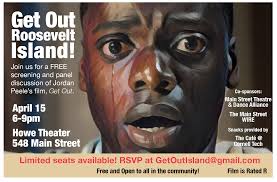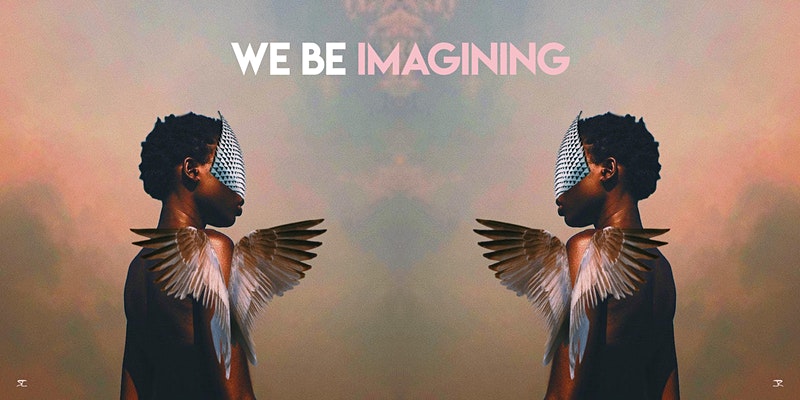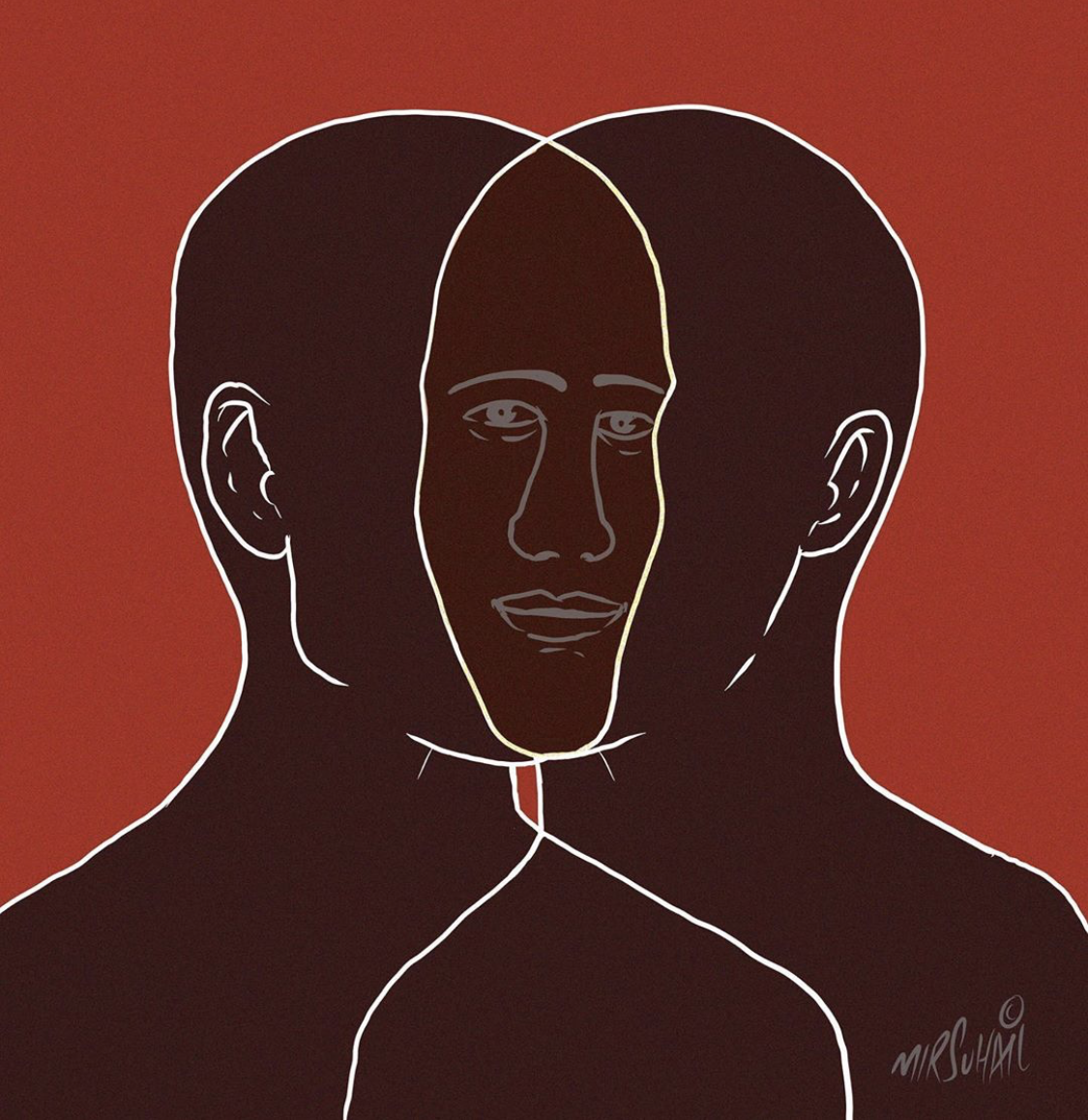J. Khadijah Abdurahman: Predictive analytics, Child Welfare, and Storytelling’s Power (Part 2 of 2)
[Cover photo credit: Mir Suhail ]Can you tell me about the oral history project at Roosevelt island- how it got started, what are the desired outcomes?
So in response to all kinds like a racist debate on an online parent network, I did a public screening of Jordan Peele’s Get Out, which was really cathartic in that it brought together Japanese parents, African parents, people of West African descent, United Nations people, a big disability contingent from the islands. We watched the movie together, and we then had a panel discussion of people who live and work on Roosevelt Island talking about how their lives intersect with racial justice either personally or professionally. One of the people on that panel was Professor Tapan Parikh at Cornell Tech. From that event we ended up collaborating on an oral history archive.
We’ve now interviewed around 50 people about their experiences of racial justice on Roosevelt island. We have spent a lot of time over the last year about what is an information science architecture that could support oral histories and how do we include relational ways of knowing in the way that we organize our organizational model and also how to document oral histories… One of the next themes we are pursuing is child welfare.
Our first oral history project was around racial justice, because racism is basically an everyday experience in my neighborhood. After the screening of Get Out, people complain[ed] bitterly that they didn’t have enough time to tell their story. So I came up with this idea to create a platform where people can tell their stories. I wasn’t necessarily emotionally invested in oral history prior to this project and through the process of doing it. There was a lot of learning, and a lot of things I got out of it. There was the typical divide between what Black people thought of racism and what white people thought of racism.

But one of the most interesting things to me was this moment when you ask people about their lives and how they see things. And there’s this moment of connection that’s hard to articulate unless you’ve experienced it, where if you do it right people feel safe enough to take the risk of being vulnerable. The majority of people when they become vulnerable regardless of class, race, and these things, there is an underlying anxiety I picked up on about a lot of people feeling on the precipice, feeling very afraid whether it be financially, or with their relationship with their spouse or kids, or their religion or smaller communities, just a lot of fear and anxiety. It just leads me to think about how to sustain these kinds of conversations and co-create spaces for people to continue having them and feeling like they are real.
Other unanticipated things came out of this as well, for example one woman, she’s Israeli-American and in her oral history account she talks about Palestine and as a kid being horrified by certain conditions she saw as a child. And she called me at two am after she finished it. She said, “I’m going to be on a list of self-hating Jews.” Apparently it’s happened to her before. And ultimately we talked about it for a long time and she decided to keep it up, and that [had] a positive impact because other people in the Jewish community decided to participate as well. But that’s real. I can’t prevent her from being on a list of self-hating Jews. So what is the cost of telling your story? What is the cost of being real? How do you alienate? Who do you bring closer? That was a big learning experience, oral history as an art.
Now that I really have gained an appreciation and have collectively gotten some skills, child welfare and ACS has always been my primary research interest, so I definitely want to start with that. We’ve only done one pilot interview so far but I hope to expand it in the fall, and thinking about one of the families and testimonies from families impacted by child welfare, but also the stories of people who design these algorithms that are being implemented, people who are doing work like Dorothy Roberts (link to her work-scientific racism), and the hope there is that you can tell a full story, but you can also have these people encountering impact on each other.
Can you tell me about the pilot episode?
Sure, I interviewed a woman who I love, love, love… named Joyce McMillan. Maybe 15-20 years ago, she had her daughters removed from her custody and she ultimately won back custody, but she never forgot as this usually has a big impact on people. So she was organizing with Child Welfare Organizing Project (CWOP) and became the head of that, but then left very publicly, because I think she felt frustrated with all the people, and she was getting tone policed. And on the board were CEOs of child welfare agencies, including Jeremy Kohomban whose the head of Children’s Village who were taking major contracts from Immigration and Customs Enforcement (ICE) when they were removing the kids and sending them to New York. His compensation actually exceeded the money from the contract.
You also have a neighborhood like Brownsville where one in 15 kids under the age of 18 have been investigated and therefore strip-searched by ACS at some point in their life. And then somewhere on the Upper East Side, it’s like zero. For those series of reasons, most of the reform in child welfare has been American Civil Liberties Union (ACLU) and slow liberal progressives who want to invest more money in getting better case workers to come help and save the disadvantaged poor, which just really ends up expanding the systems and just changing the ways in which people are policed but not addressed the actual fundamental issues.
Is the project published anywhere?
So the one we did on racial justice, half of it is online at wordtori.com. Those are all the interviews we did after the summer of 2018.
What will it take to shut down some of these data driven systems? What do you think about abolition?
With abolition, to be honest, I feel very cynical about a lot of the things I see out there right now based on my experience with the Revolutionary Communist Party and the stuff around child welfare and academia. None of that makes me too hopeful. And honestly when I think about abolition, I think about Harriet Tubman, and I think we just need tactical orientation. Like if you go to the hood right now and go “prison industrial complex, we should end it!” people will look up. And it’s not cause they disagree. They’re not like, “Yay… prison!”
But if you like start freeing people from prison and your partner who knows a computer scientist who can take a look at these digitized locks on cars or ankles, then that’s a different story Overall, I think a lot of these idiotic conversations about racial diversity and professional development and allyship… If you wanna hold my cousin down when he comes home from jail, and if the police is coming, you can put him in your closet. I think that changes the conversation. The same thing with ACS, there are some parents who do present a danger to their children, but they’re like the vast minority. And it’s not a Black issue. It happens across all demographics mainly that are not represented by who ACS targets.
I feel like one very specific solution is that people should collect their own children and go have sanctuary in a church, just like you would do for someone being investigated by ICE. Then you also have built in supervision. You have parishioners—people who can help. But that changes the dynamic of the conversation, and I think we absolutely need to merge any powerful conversation with material tactical, actual change.

What are the things that do give you hope? What are some of these tactical orientations?
The things that give me hope are all the things I’ve learned about ACS and the history of child welfare in this country is so much worse and so much more vast than anyone realizes like the depth of the policing and the layers through which we shatter bonds between generations.
With that said, it’s so amazing how families persist and continue to have that connection. I try to always emphasize that when I’m speaking to people, because people who really know what time it is and really experience this. They understand what I’m saying when I’m talking about the danger of these systems. And then they get depressed and want to smoke some weed and drink something.
I think it’s important to understand that despite everything, when the parameters of your algorithm are oriented towards “is this person a criminal threat?” you’ll only find evidence to substantiate that. I think it is a strategic opportunity cause then they’re not prepared that you’re a poet with a team of computer scientists that are about to break the system. Social networks and relationships is what gives me hope.
When I think about ICE, it’s terrible they separated all of these families obviously, and the point I was trying to get at in that article is that its not just Trump declaring this order. There is infrastructure to carry out these orders. And that infrastructure was built on domestic child welfare, removal, institutionalization. But then I saw those lawyers that banded together to try to identify those kids and trying to figure out ways outside of the system… [so] they could have people reconnect with each other.
At that point, I think the capacity just wasn’t there to facilitate that kind of thing. But when we think about movements and resistance, one, it’s about building up the capacity to actually intervene when the system is doing something terrible like that. And two, offer an alternative modality about how to address these things because just talking to people—people don’t have time for that.
One a last note, can you tell me about your love and interest hip hop?
I just love hip hop. You ever seen Love and Basketball? You know when she asks, “Tell me the day you fell in love with hip hop?” So yeah, I feel like that’s critical for me. Like I don’t know if I’ve had a serious relationship with someone and that isn’t a reference point.
It always depresses me in academia that people have no hip hop literacy. I had this presentation on hip hop and algorithms cause when Biggie on Juicy says, “Shout out to all the teachers that thought I would amount to nothing.” In there, you can see they had a predictive persuasive algorithm based on x-y-z data points that they thought he was going to have this outcome. And they never anticipated not just his life earnings, but what he was going to be and going to represent.
I feel like hip-hop is like religion for me, and in my generation that just helps people make sense of the world around them. I just like that it’s so critical just on basic human interaction. I wrote this other piece on medium called FAT* Be Wilin’ (pronounced Fat Star, standing for Conference on Fairness, Accountability, and Transparency) because FAT* really does depress me ever so much. And somebody actually wrote this manifesto in response to a tweet I wrote questioning their paper on racial categories and machine learning. And I was thinking “Is this real, is this something I’m missing? Or did they say they’re going to mitigate all racial inequity by changing this one aspect of their algorithm?”
In my response in FAT* Be Wilin’ is part of my thing is that there is some discussion about African American vernacular not being recognized by Alexa and stuff like that. But I think people also miss ontologically what is embedded in AAVE [African-American Vernacular English]. So “be wilin’”… the habitual “be” doesn’t exist in standard American English. And so “to be” is like “I am.” …What does that say about our understanding of the world and try to find ways to fit that in? I don’t have a lot of hope on that though, so I’m more focused on the data side and trying to merge that knowledge

